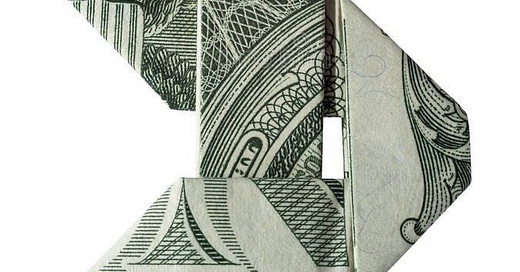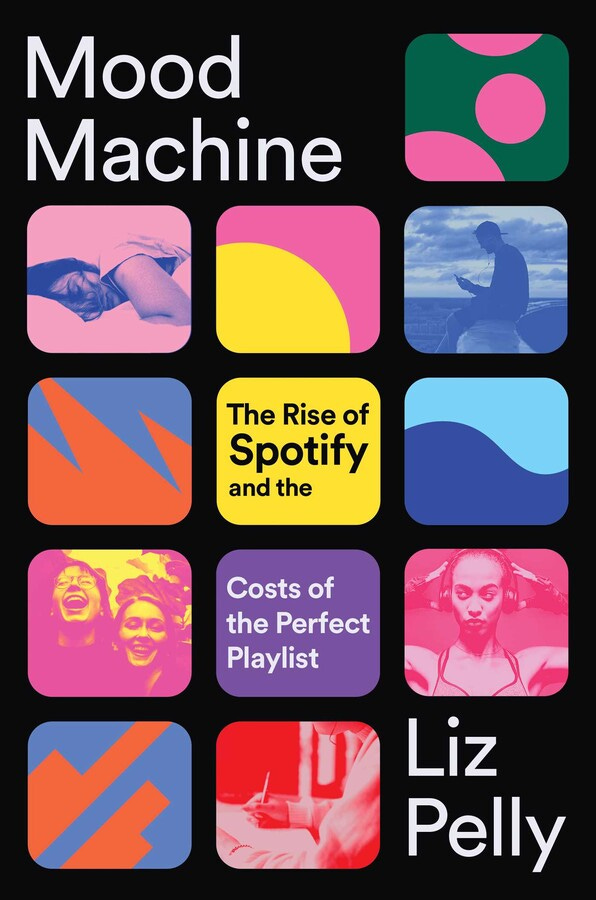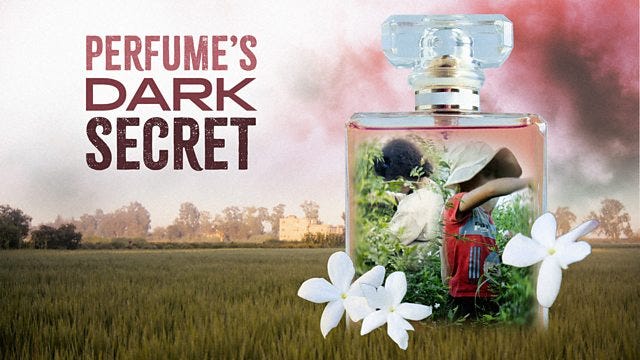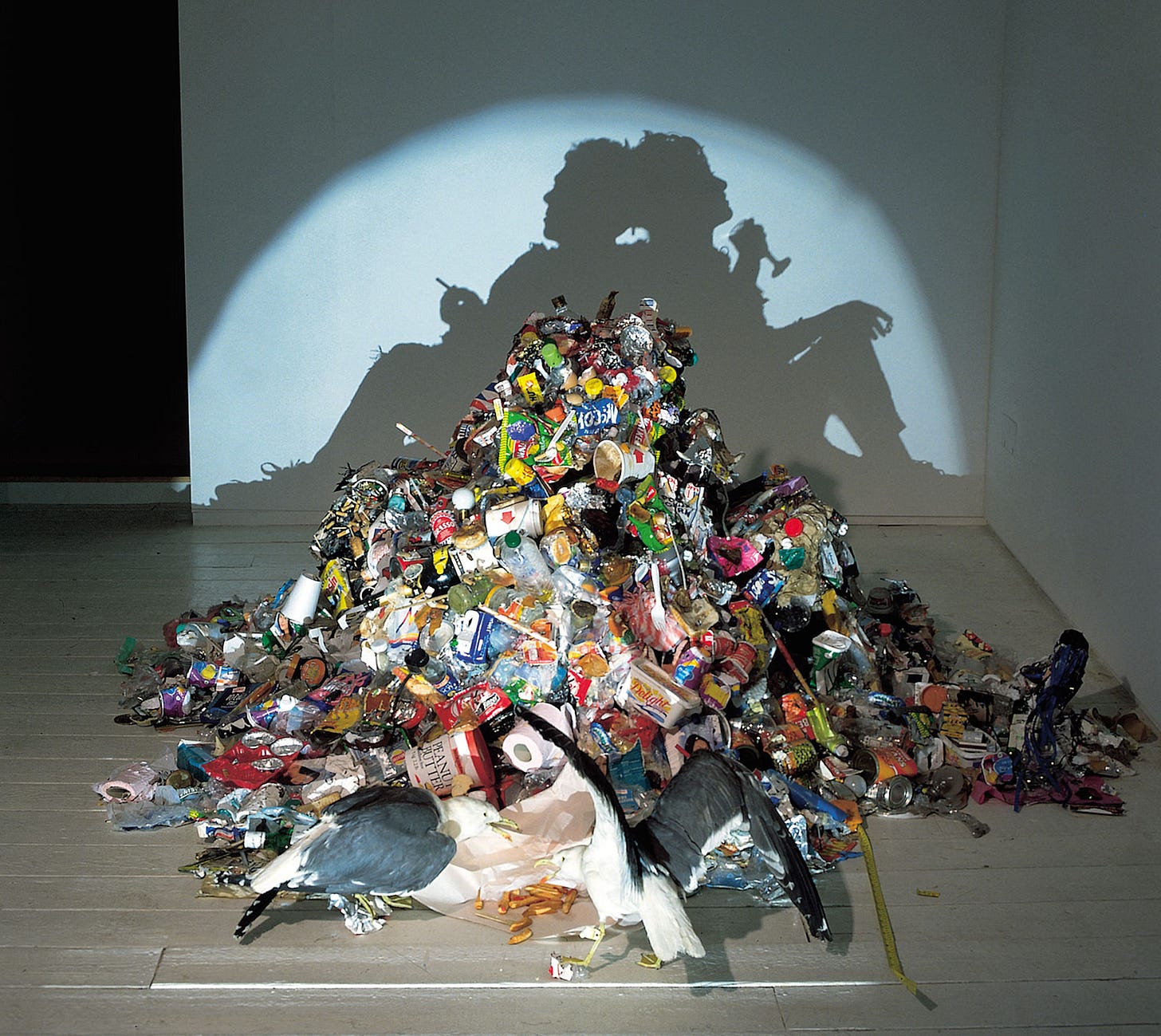It’s a Full Moon, the time of the month when I do a deep dive on a theme and offer 7 sensory recommendations to further explore that topic. In anticipation of Earth Day, I wanted to share a subject that has changed the way I shop, eat, and share.
For the last decade, I’ve made a living by creating content for various brands and institutions. A few years ago, one of my clients, a sustainable haircare company, asked me to create content tailored to their mission. My goal was to develop a strategy that matched their values, minimizing waste, particularly water usage.
What I discovered in my research astonished me: the carbon footprint social media is responsible for “is on a par with the entire aviation industry’s emissions from fuel.” Data centers in particular consume a gigantic amount of electricity — 80% of which currently comes from fossil fuel power stations. In order to keep these data centers from over-heating, they also consume tons of water.
Keep in mind that I came across these facts over five years ago, so I imagine that things have gotten a lot worse since then. Prior to this discovery, I had never thought about the earthly impact of our digital usage. For some reason, it seemed that an Instagram post or a marketing email just simply vanished once it was released. But that’s far from being the case. Every time we share anything digitally, we’re taking the earth’s energy to store our data. Imagine: every meme, tweet, reel, is just gobbling the planet’s precious resources.
With this information at hand, I suggested to my client that they post minimally and make their content thoughtful and educational. I also advised them to focus on photos, which consume less energy than videos. This goes against the grain of how these platforms function: they’re designed for us to constantly churn mindless content, and favor motion over static images. They reward speed, superfacility, and over-consumption.
Trying to be “sustainable” in the digital world is a paradox. Lately, I’ve seen a lot of information about A.I being unsustainable. For example, “if every 10 people in the USA asked ChatGPT to write one email per week, it would amount to using 435 million liters of water.” And that “by 2026, the amount of energy used by global data centres could be reaching levels that exceed large nations.”
Raising awareness of the effect that A.I has on the planet is a good start. But most people don’t realize that their daily use of email, social media, and other digital tools can be just as harmful.
Nothing is ever black and white, and some of our digital tools have benefits. Afterall, sending you this message is consuming precious electricity and water. But I’m hoping it gives more than it takes. I try to make that the barometer for my digital use: questioning whether what I share on the internet is more helpful than harmful. I try to limit my output to tilting our consciousness towards positive change, useful information, beauty-filled recommendations – rather than posting for its own sake.
It reminds me of the acronym W.A.I.T which stands for Why am I talking? Or another catchy phrase comes to mind – T.H.I.N.K (before speaking, or in this case posting) and ask yourself: Is it True? Helpful? Inspiring? Necessary? Kind? Imagine what the internet would sound like if we used that as a compass for communication…
One of the challenges of holding back, or mulling over our thoughts before blurting them out, is that most digital platforms appear to be free. There is no perceived financial cost to posting on Instagram, Twitter, TikTok, etc. But the price we pay is much more subtle: not only does it suck up the earth’s energy, it also takes so much of our own time, and even money.
Beyond affecting our mental health, there is also a financial price for our social media use. By partaking on most platforms, we willingly share our data with advertisers, giving them a free pass to manipulate our choices, and our wallets.
What may seem free or cheap often turns out to be extremely costly for ourselves, our community and our planet. It’s not just our digital consumption. It also applies to the clothes we wear, the food we eat, and the entertainment we consume (more on that in the below senses). Across these various industries, the problem seems to stem from the same cause: greed from corporate shareholders prioritizing profit over the wellbeing of people and planet.
If this sounds depressing, it’s not meant to be. My hope is that this information is empowering. Learning about the impact of our various consumptions enables us to make different choices. The below resources don’t just point out the problem, they also provide inspiring solutions. Some of the featured recommendations have awakened me to change the way I live. I hope they help you do the same.
For this full moon, I offer you seven ways to learn the True Cost of what we SEE, HEAR, SMELL, TASTE, TOUCH, BALANCE and ENVISION.
In Joy,
Sabrina
SEE
The True Cost | documentary by Andrew Morgan
Watch online
This documentary completely blew me away when I first saw it in 2015 in a private screening with the director. I was in tears half way through. Never have I been more thoroughly educated on a topic I knew so little about: fast fashion. Since then, I have completely changed the way I buy clothes, the brands I choose to support and the ones I boycott. A must watch.
HEAR
Mood Machine | book by Liz Pelly
Available at bookstores and online
For years, I’ve known about how little money music artists make from streaming platforms. But recently, I learned about a darker side to streaming (thanks to
‘s article).Journalist Liz Pelly has conducted an in-depth investigation about Spotify’s practices – which involves a slew of “fake artists” (generated by production companies hired by Spotify). In short: Spotify has found a way to avoid paying artists and record labels by releasing and promoting music by “ghost artists”. As explained by Ted Gioia: “Spotify apparently targeted genres where they could promote passive consumption. They identified situations in which listeners use playlists for background music” – which includes “ambient, classical, electronic, jazz, and lo-fi beats.”
You can read an excerpt of Liz Pelly’s new book ‘Mood Machine’ in Harper’s.
SMELL
Perfumes Dark Secret | BBC documentary
Watch online
The BBC conducted a deep investigation a couple years ago regarding the perfume trade, particularly the ways in which it relies on illegal child labor to harvest some of its most precious resources (such as jasmine). This 40 minute documentary was so enlightening and I hope you take the time to dive in.
The BBC has also released other scent related mini-docs (10 minutes), such as ‘Is Perfume Toxic for the Environment?’ and ‘Is Your Perfume Made Using an Endangered Species?’
TASTE
Food Inc 2 | documentary by Melissa Robledo and Robert Kenner
Available on Kanopy, Hulu, YouTube, Apple TV, Google Play
The first ‘Food Inc’ documentary awakened so many people to how food is grown and manufactured in the US. And this sequel, which came out in 2023, is just as enlightening. I thought I knew a good amount about our agricultural industrial complex, but I learned so much more watching this. It gave me such a deeper understanding of the forces at play – the giant food corporations, who spend more on lobbying than the defense industry.
As Corey Booker explains in the documentary: these companies “formulate a market of nutrient-poor, addictive, ultra-processed foods that now comprise 2/3 of the calories of children and teens in the US. And these companies want us to believe that the diet-related diseases such as obesity and diabetes are somehow a moral failing - that they represent a lack of will-power or to get enough exercise. That is just a lie.”
The film also gave me hope, seeing the farmers and consumers creating alternative systems to protect our health and that of the planet.
To learn more and take action, visit foodinc2.com
TOUCH
Minimalism | documentary directed by Matt D'Avella
Available on YouTube, GooglePlay, Apple TV, Amazon Prime
The myth of the ‘American Dream’ has increasingly become synonymous with "having more.” But material accumulation doesn’t lead to happiness. In fact, it leaves us increasingly dissatisfied, ravaging our mental health, finances, and the earth’s resources.
This compelling documentary offers “minimalist” alternatives to living: from downgrading our homes, to decreasing our shopping habits –– showing us that less stuff = more contentment.
BALANCE
Ecosia | sustainable search engine
Learn more online
I recently learned about this internet search engine which is an alternative to the ones we typically use (such as Google, Safari etc). Launched in 2009 from Berlin, Germany,Ecosia, like other search engines, makes its profit through search engine ads. But it dedicates 80% of those profits to planting trees.
As of today, Ecosia had planted over 200 million trees in 16 countries and averaged one planted tree per 0.8 seconds - from advertising alone.
ENVISION
Quote from ‘Deep Work’ by Cal Newport
"Much of what you consume is poisoning you. The amount of calories you eat; the quantities of violence you absorb; the weight of your possessions; the overwhelming amount of data that inundates you daily — all of this and more is burying you alive. You are drowning in a sea of choice that gives no guidelines for choosing wisely. You no longer know how to tell the difference between truth and well-packaged lies.”


















W.A.I.T....why AM I talking? Absolutely the best thing I've read/learned in a long while. Thank you Sabrina...this one speaks to me and where we are in the world right now so much. xx
This was hard to read/take in. :( But thank you for talking about it, it’s important to be aware.